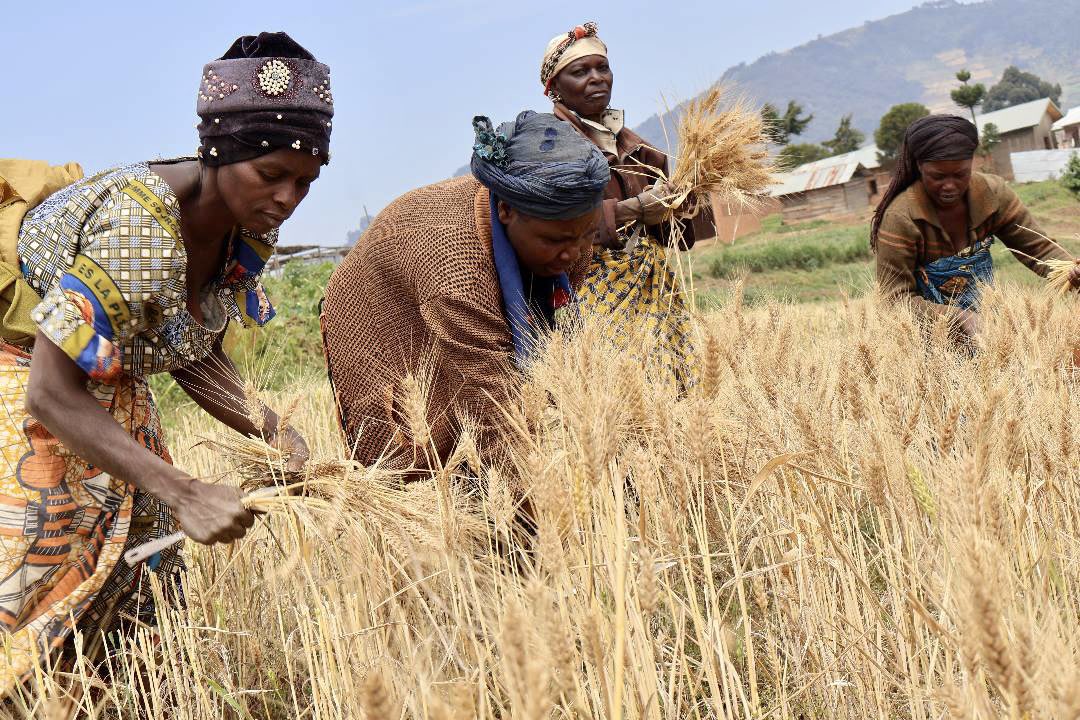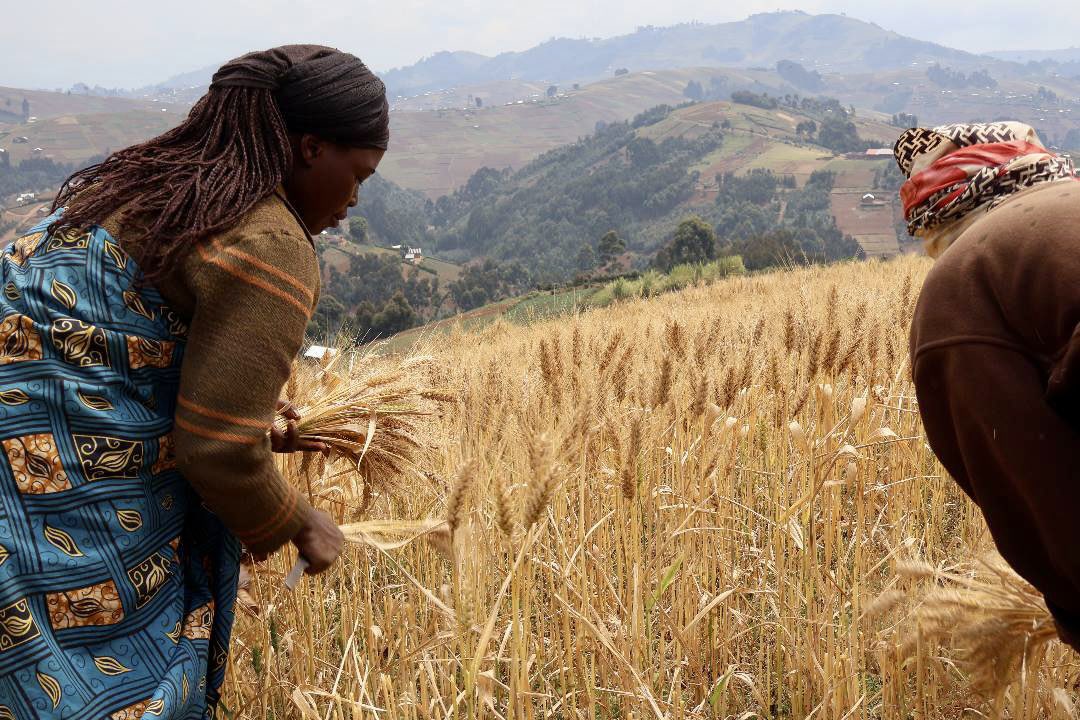Support Gorilla Conservation >

In response to the food security crisis born out of the war in Ukraine, the Lubero district of Virunga National Park has seen its first wheat harvest in a quarter of a century. The revival of the wheat-cultivating sector in this region follows the model first implemented in Beni, where coffee, cocoa and palm oil have all been successfully introduced in recent years.
The initiative worked with smallholder farmers, organized into cooperatives, who received seeds and technical support to plant nearly 80 hectares in this first experiment, with the aim of covering a further 500 hectares in the near future. Forged with the support of Virunga National Park and the European Commission, the forward-thinking project will provide ongoing expertise to farmers, helping them to farm the crop effectively in the unique conditions of the local environment.

The project’s early results are very encouraging, demonstrating the ability of montane Africa to support the cultivation of wheat, which tends to thrive in traditional wheat-growing countries with cooler climates.
The Lubero area in particular provides a number of key advantages: the high altitude (1,800+ m) reduces the prevalence of pests and disease versus hotter, lower-lying farmland; high levels of local rainfall provide a reliable and natural water supply that reduces the impact on surrounding nature; and the region’s equatorial, mountainous geo-location offers an extended growing season versus lower altitudes and more northerly wheat-growing regions, such as Europe, where seasonal changes are much more extreme.
Once the scope of this sustainable farming project has been expanded, the positive effects would be threefold: farmers gain income and skills from growing and selling their crop; local businesses, such as flour mills, distributors and local bakeries, benefit from the inflow of locally produced wheat; and the wider global community gains access to a diversified source of wheat, the most widely consumed food staple on the planet.
The unfolding success story in Lubero District is a testament to the resilience and determination of local communities. Each new seed that matures into part of a flourishing crop symbolizes a renaissance of wheat-growing in the area. By harnessing the potential of small farms and working with local businesses, this initiative can have a real transformative effect, propelling local communities towards economic independence.

Learn More
Learn More
Learn More